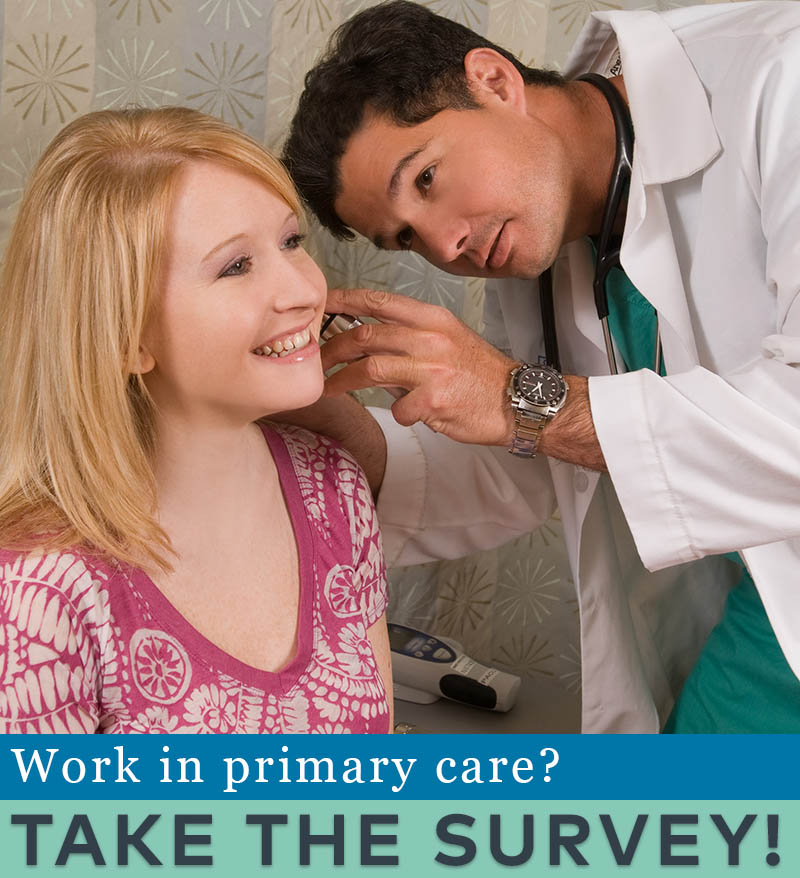You are looking at an archived version of our site. Please visit thepcc.org for a fresh, new experience!
You are here: Array » Primary Care Has Not F ...
Primary Care Has Not Fully Bounced Back, According to New Survey
WASHINGTON, September 22, 2020 – Primary care has not regained all of the strength it had before the pandemic, according to the results of a new survey of primary care clinicians released today by the Larry A. Green Center, a research organization, in collaboration with the Primary Care Collaborative (PCC). These findings come at a time when school re-openings are threatening to increase the spread of the coronavirus and the country faces a potential resurgence of the virus in the upcoming winter flu season.
The condition of primary care has improved modestly in the past several weeks, but the survey, conducted Sept. 4-8, indicates that primary care remains in significant need of support; 35% of respondents say revenue and pay are still significantly lower than pre-pandemic levels and net losses threaten current and future viability. Another third of clinicians say the financial picture has been slowly improving, but the workforce is fragile and in trouble. And 1 in 5 practices reports they have clinicians who have chosen early retirement or left their jobs as a direct result of the pandemic.
“An overwhelming number of clinicians – 81% – disagree emphatically with the notion that primary care has rebounded,” said Rebecca Etz, PhD, co-director of The Larry A. Green Center. “Practice clinicians and staff are working longer hours to keep up with patient needs and still have yet to reach pre-pandemic capacity. Significant furloughs, practice members out for child and elder care, and clinicians out due to illness and self-quarantine have caused the primary care platform to shrink. The past six months have shown us what short-term planning and lack of investment yields during times of crisis – devastation of a critical workforce. But the question is now: Are we committed enough to do something about it?”
“The vast majority of primary care practices have not returned to their pre-pandemic status. The primary care system is fragile and shrinking as we approach the cold and flu season,” said Ann Greiner, President and CEO of the PCC. “Practices need state, federal, and private-sector support to address disruptions to primary care funding so that they can safeguard the health of the public. Primary care is pandemic preparedness.”
The survey was conducted by the Larry A. Green Center, a research group in Richmond, Virginia. The survey is part of a regular Green Center series to look at the attitudes of primary care clinicians and patients during the COVID-19 pandemic and the abilities of practices to meet patients’ needs.
The survey of clinicians received 489 responses from 49 states. 70% of respondents identify their practice as family medicine, 13% as internal medicine, 6% as pediatrics, 5% as geriatrics, 1% as mental health, and 5% as other. Settings include 24% rural, 13% community health centers, 9% in schools/offices, and 28% in designated patient-centered primary care homes. 33% have 1-3 clinicians in the practice, and 40% have more than 10 clinicians. 37% are owned by a health system, 32% are self-owned, 12% are independent and large-group, and 4% are government-owned. 7% are convenience settings, and 4% are membership-based.
More information about the survey
###
Visit PCC’s website for:
- more details on the survey findings
- executive summary of the survey
Experts are available to provide insight and comment on the survey:
- Ann Greiner, president and CEO of the Primary Care Collaborative
- Rebecca Etz, PhD, co-director of The Larry A. Green Center
If you would like to speak with them, please contact Stephen Padre (Primary Care Collaborative's communications manager), spadre@thepcc.org, 202-417-3911
About The Green Center:
The The Larry A. Green Center for the Advancement of Primary Health Care for the Public Good is a research group founded by Rebecca Etz, PhD at Virginia Commonwealth University and Kurt Stange, MD, PhD at Case Western Reserve University. The Green Center works to reclaim and reconstitute the intellectual foundations of primary care, to advance the science of medicine learned and practiced within layered and competing social frameworks of meaning, and to deliver on a now 50 year old promise: better health and improved health care through a synergistic focus on both humanism and healing. We are nimble, inquisitive, curious, and open. We make personal doctoring and innovation visible.

Are you a physician, nurse practitioner, or PA working in primary care?
Help PCC and the Larry A. Green Center track how your practice is responding to the COVID-19 outbreak by completing the Green Center's occasional survey.
The regular surveys are no longer being conducted.
COVID-19 Updates
May 9, 2022 | Primary Care Collaborative
April 19, 2022 | Primary Care Collaborative
April 19, 2022 | Primary Care Collaborative
March 7, 2022 | STAT
February 27, 2022
- 1 of 39
- suivant ›
Recent News
August 16, 2024
August 12, 2024
July 16, 2024
May webinar highlights: “The Commercial Market: Alternative Payment Models for Primary Care” Nate Murray explains w… https://t.co/KX9Wi2w6oY —
Il y a 2 années 8 mois
@CMSinnovates’ primary care strategy is rooted in a 2021 @theNASEM’s report which called #primarycare “foundational… https://t.co/glbPxvCysg —
Il y a 2 années 8 mois
@CMSinnovates has a new #primarycare strategy, envisioning “ACO-based primary care model tests that may focus on pr… https://t.co/aJGF1z411l —
Il y a 2 années 8 mois
- Page 1
- ››
Secondary menu
Copyright © 2024 Primary Care Collaborative



